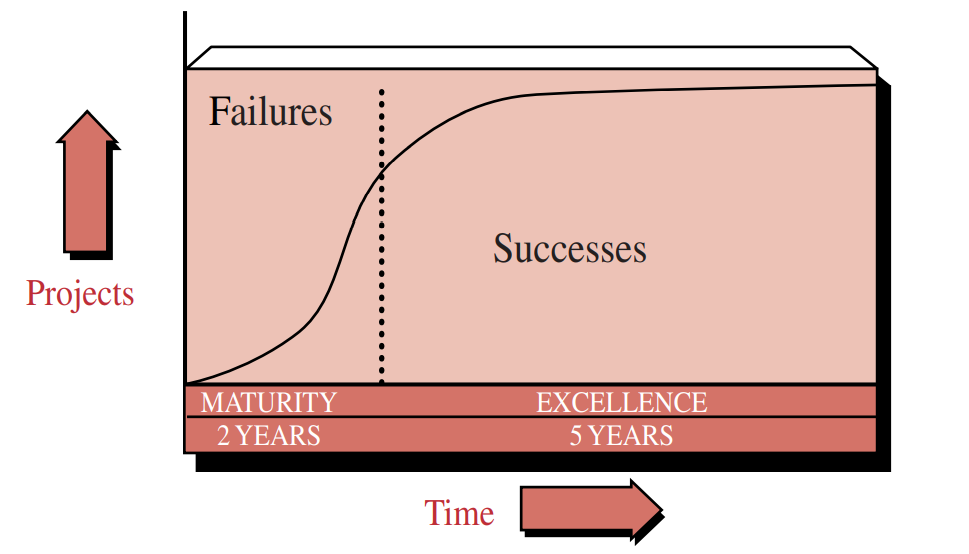Some people contend that maturity and excellence in project management are the same.
Unfortunately, this is not the case. Consider the following definition:
Maturity in project management is the implementation of a standard methodology and accompanying processes such that there exists a high likelihood of repeated successes.
This definition is supported by the life-cycle phases shown in Table 2–1. Maturity implies that the proper foundation of tools, techniques, processes, and even culture, exists.
When projects come to an end, there is usually a debriefing with senior management to discuss how well the methodology was used and to recommend changes. This debriefing looks at “key performance indicators,” which are shared learning topics, and allows the organization to maximize what it does right and to correct what it did wrong. The definition of excellence can be stated as:
Organizations excellent in project management are those that create the environment in which there exists a continuous stream of successfully managed projects and where success is measured by what is in the best interest of both the company and the project (i.e., customer).
Excellence goes well beyond maturity. You must have maturity to achieve excellence. Figure 2–11 shows that once the organization completes the first four life-cycle phases in Table 2–1, it may take two years or more to reach some initial levels of maturity. Excellence, if achievable at all, may take an additional five years or more.


Figure 2–11 also brings out another important fact. During maturity, more successes than failures occur. During excellence, we obtain a continuous stream of successful projects. Yet, even after having achieved excellence, there will still be some failures.
Executives who always make the right decision are not making enough decisions. Likewise, organizations in which all projects are completed successfully are not taking enough risks and are not working on enough projects.
It is unrealistic to believe that all projects will be completed successfully. Some people contend that the only true project failures are the ones from which nothing is learned.
Failure can be viewed as success if the failure is identified early enough so that the resources can be reassigned to other more opportunistic activities.
Source : Project management A system approach to planning, scheduling and controlling [EIGHTH EDITION] By HAROLD KERZNER, Ph.D.